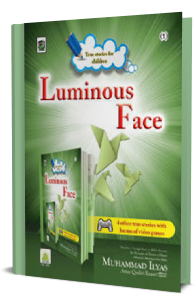
O devotees of the Holy Prophet! By Divinely-bestowed authority, the Holy Prophet صَلَّى اللّٰـە عَلَيْهِ وَاٰلِهٖ وَسَلَّم can declare anything to be ‘Fard and Wajib’ or ‘impermissible and Haraam’ as he صَلَّى اللّٰـە عَلَيْهِ وَاٰلِهٖ وَسَلَّم wishes. Moreover, he صَلَّى اللّٰـە عَلَيْهِ وَاٰلِهٖ وَسَلَّم can exempt anyone he wants from a general commandment. Among the specialities of the Holy Prophet صَلَّى اللّٰـە عَلَيْهِ وَاٰلِهٖ وَسَلَّم, this is a great speciality which highly acclaimed Islamic scholars, Fuqaha[1], Mufassireen[2], Muhaddiseen[3], and Mujtahideen have mentioned.
Imam-e-Ahl-e-Sunnat, Imam Ahmad Raza Khan رَحْمَةُ الـلّٰـهِ عَلَيْه has written: ‘Researching Islamic scholars have made it quite clear that the commandments of Shari’ah have been given under the authority of the Holy Prophet صَلَّى اللّٰـە عَلَيْهِ وَاٰلِهٖ وَسَلَّم . He صَلَّى اللّٰـە عَلَيْهِ وَاٰلِهٖ وَسَلَّم can declare anything Wajib and anything impermissible and can also exempt anything or anyone from any commandment, as he صَلَّى اللّٰـە عَلَيْهِ وَاٰلِهٖ وَسَلَّم wishes. (Zurqaani ‘alal Mawahib, vol. 7, pp. 346; Fatawa Razawiyyah, vol. 30, pp. 518)
Some detail regarding this special authority of the Holy Prophet صَلَّى اللّٰـە عَلَيْهِ وَاٰلِهٖ وَسَلَّم is mentioned below:
Authority to declare something Halal or Haraam
Many verses of the Holy Quran and numerous Ahadees have proved that the Holy Prophet صَلَّى اللّٰـە عَلَيْهِ وَاٰلِهٖ وَسَلَّم can declare anything Halal or Haraam, or Fard or Wajib, as he صَلَّى اللّٰـە عَلَيْهِ وَاٰلِهٖ وَسَلَّم wishes. As a proof, one verse of the Holy Quran and one Hadees have been presented below:
Allah Almighty has mentioned 2 following attributes of His beloved prophet صَلَّى اللّٰـە عَلَيْهِ وَاٰلِهٖ وَسَلَّم:
وَ یُحِلُّ لَهُمُ الطَّیِّبٰتِ وَ یُحَرِّمُ عَلَیْهِمُ الْخَبٰٓىٕثَ َ
And he will make the clean things lawful for them and make the unclean things unlawful for them.
[Kanz-ul-Iman (translation of Quran)] (Part 9, Surah Al-A’raf, Ayah 157)
The Holy Prophet صَلَّى اللّٰـە عَلَيْهِ وَاٰلِهٖ وَسَلَّم has stated: ‘اِنِّی حَرَّمْتُ كُلَّ مُسْكِرٍ’ i.e. ‘Indeed, I have declared every intoxicant Haraam.’(Nasa`ee, pp. 886, Hadees 5614)
Exempting someone from a general commandment
Allah Almighty has given the Beloved Prophet صَلَّى اللّٰـە عَلَيْهِ وَاٰلِهٖ وَسَلَّم the authority to exempt anyone from a general commandment, as he صَلَّى اللّٰـە عَلَيْهِ وَاٰلِهٖ وَسَلَّم wishes. Six of the many examples mentioned in Ahadees have been given below:
1. General commandment
The Holy Prophet صَلَّى اللّٰـە عَلَيْهِ وَاٰلِهٖ وَسَلَّم has stated: اِنَّ اللهَ قَدْ اِفْتَرَضَ عَلَيْهِمْ خَمْسَ صَلَوَاتٍ فِی كُلِّ يَوْمٍ وَلَيْلَةٍ i.e. Indeed, Allah Almighty has declared 5 Salahs Fard for His bondmen every day and night. (Bukhari, vol. 1, pp. 471, Hadees 1395)
Exemption from 3 Salahs
One person came to the court of the Holy Prophet صَلَّى اللّٰـە عَلَيْهِ وَاٰلِهٖ وَسَلَّم and embraced Islam on the condition that he would offer only 2 Salahs. The Holy Prophet صَلَّى اللّٰـە عَلَيْهِ وَاٰلِهٖ وَسَلَّم accepted this condition of his. (Musnad-e-Ahmad, vol. 7, pp. 283, Hadees 20309)
2. General commandment
Allah Almighty states:
وَ اسْتَشْهِدُوْا شَهِیْدَیْنِ مِنْ رِّجَالِكُمْۚ-
And appoint two witnesses from amongst your men
[Kanz-ul-Iman (translation of Quran)] (Part 3, Surah Al-Baqarah, Ayah 282)
One male witness declared equal to two
The title of Sayyiduna Khuzaymah Bin Saabit Ansari was ذُوالشَّھادَتَیْن. The Holy Prophet صَلَّى اللّٰـە عَلَيْهِ وَاٰلِهٖ وَسَلَّم declared forever that the evidence given by Sayyiduna Khuzaymah Bin Saabit alone was equal to the evidence given by two men. Therefore, he صَلَّى اللّٰـە عَلَيْهِ وَاٰلِهٖ وَسَلَّم said: مَنْ شَهِدَ لَهٗ خُزَ يْمَةُ اَوْ شَهِدَ عَلَيْهِ فَحَسْبُهٗ i.e. Whomsoever Khuzaymah gives evidence for or against, the evidence given by him alone suffices. (Mu’jam-e-Kabeer, vol. 4, pp. 87, Hadees 3730)
3. General commandment
Holding silk in his right hand and gold in his left one, the Holy Prophet صَلَّى اللّٰـە عَلَيْهِ وَاٰلِهٖ وَسَلَّم said: اِنَّ هٰذَيْنِ حَرَامٌ عَلٰى ذُكُورِ اُمَّتِیْ ْ i.e. Indeed, both these things are Haraam for the men of my Ummah. (Abu Dawood, vol. 4, pp. 71, Hadees 4057)
Permission of wearing silk clothes
Sayyiduna Zubair Bin ‘Awwam and Sayyiduna Abdur Rahman Bin ‘Awf رَضِىَ اللّٰـەُ عَـنْهُما had a dry itch on their body. The Holy Prophet صَلَّى اللّٰـە عَلَيْهِ وَاٰلِهٖ وَسَلَّم gave them the permission to wear silk clothes. (Bukhari, vol. 4, pp. 61, Hadees 5839)
4. General commandment
Sayyiduna Baraa Bin ‘Aazib رَضِىَ اللّٰـەُ عَـنْهُ has narrated: نَهَانَا رَسُولُ اللهِ صَلَّى اللّٰـەُ عَلَيْهِ وَسَلَّمَ عَنْ خَاتَمِ الذَّهَبِ i.e. The Holy Prophet صَلَّى اللّٰـە عَلَيْهِ وَاٰلِهٖ وَسَلَّم has forbidden us from wearing a gold ring. (Al-Mujalasah wa Jawahir-ul-‘Ilm, vol. 3, pp. 283, Hadees 3639)
Permission for wearing gold ring
Sayyiduna Baraa Bin Aazib رَضِىَ اللّٰـەُ عَـنْهُ used to wear a gold ring. Upon people objecting to it, he رَضِىَ اللّٰـەُ عَـنْهُ mentioned: ‘We were in the court of the Holy Prophet صَلَّى اللّٰـە عَلَيْهِ وَاٰلِهٖ وَسَلَّم who was distributing the spoils of war. At the end, when only this ring was left, he صَلَّى اللّٰـە عَلَيْهِ وَاٰلِهٖ وَسَلَّم raised his blessed gaze and looked at the attendees and then lowered his gaze. Second time, he صَلَّى اللّٰـە عَلَيْهِ وَاٰلِهٖ وَسَلَّم raised his gaze and then lowered his [blessed] gaze. Third time, he صَلَّى اللّٰـە عَلَيْهِ وَاٰلِهٖ وَسَلَّم cast his merciful gaze and said: ‘O Baraa!’ I [i.e. Sayyiduna Baraa] went close to him [i.e. the Holy Prophet صَلَّى اللّٰـە عَلَيْهِ وَاٰلِهٖ وَسَلَّم] and sat down. Holding the ring, he صَلَّى اللّٰـە عَلَيْهِ وَاٰلِهٖ وَسَلَّم held my wrist and said: اِلْبَسْ مَا كَسَاكَ اللهُ وَرَسُوْلُهٗ i.e. Wear whatever Allah and His Rasool make you wear. (Musnad-e-Ahmad, vol. 6, pp. 427, Hadees 18625)
5. General commandment
The duration of Iddat for a woman whose (husband has passed away) is four months and ten days. (Bahar-e-Shari’at, vol. 2, pp. 237)
Allah Almighty states:
وَ الَّذِیْنَ یُتَوَفَّوْنَ مِنْكُمْ وَ یَذَرُوْنَ اَزْوَاجًا یَّتَرَبَّصْنَ بِاَنْفُسِهِنَّ اَرْبَعَةَ اَشْهُرٍ وَّ عَشْرًاۚ-
And those amongst you who die leaving wives behind, they (widows) shall restrain themselves for four months and ten days.
[Kanz-ul-Iman (translation of Quran)] (Part 2, Surah Al-Baqarah, Ayah 234)
‘Iddat for three days
Sayyiduna Ja’far Tayyar رَضِىَ اللّٰـەُ عَـنْهُ was the husband of Sayyidatuna Asma Bint-e-Umays رَضِىَ اللّٰـەُ عَـنْهُ . When he رَضِىَ اللّٰـەُ عَـنْهُ was martyred, the Holy Prophet صَلَّى اللّٰـە عَلَيْهِ وَاٰلِهٖ وَسَلَّم said to her: تَسَلَّبِىْ ثَلَاثَا ثُمَّ اصْنَعِىْ مَا شِئْتِ i.e. Stay away from adornment for three days, then do whatever you want. (Jami’-ul-Ahadees, vol. 4, pp. 89, Hadees 10362)
Here, the Holy Prophet صَلَّى اللّٰـە عَلَيْهِ وَاٰلِهٖ وَسَلَّم exempted her from the general commandment which declares that it is Wajib for a woman to observe Saug[4] over the death of her husband for four months and ten days. (Fatawa Razawiyyah, vol. 30, pp. 529)
6. General commandment
The one who is in need of taking a Shar’i bath, it is Haraam for him to enter a Masjid. (Bahar-e-Shari’at, vol. 1, pp. 326)
Exemption
The Holy Prophet صَلَّى اللّٰـە عَلَيْهِ وَاٰلِهٖ وَسَلَّم has said: یَاعَلِیُّ! لَایَحِلُّ لِاَحَدٍ اَنْ یَّجْنَبَ فِیْ ھٰذَا الْمَسْجِدِ غَیْرِیْ وَغَیْرَکَ i.e. O Ali! It is not Halal for anyone except you and me to enter this Masjid in the state of Janabat[5]. (Tirmizi, vol. 5, pp. 408, Hadees 3748)
Tu Naaib-e-Khuda hay Mahboob-e-Kibriya hay
Hay mulk may Khuda kay jaari nizaam tayra
(Qabala-e-Bakhshish, pp. 23)
[1] Islamic Jurists
[2] Commentators of the Holy Quran
[3] Islamic Scholars who are expert in the science of Hadees
[4] In Islamic laws, Saug is a term in which a widow it required to mourn for certain time of period whose details can be seen in Bahar-e-Shari’at.
[5] The state of impurity in which it becomes necessary to take a Shar’i bath to enter a Masjid and perform certain acts of worship.













Comments